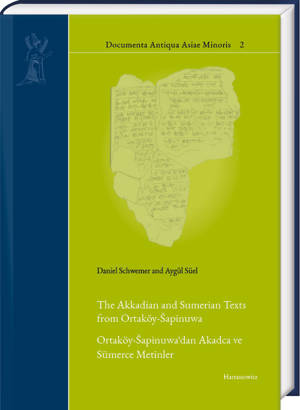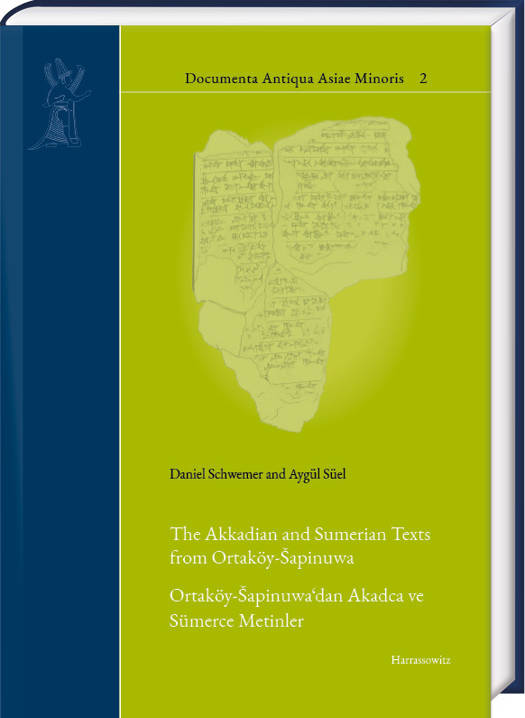
- Afhalen na 1 uur in een winkel met voorraad
- Gratis thuislevering in België vanaf € 30
- Ruim aanbod met 7 miljoen producten
- Afhalen na 1 uur in een winkel met voorraad
- Gratis thuislevering in België vanaf € 30
- Ruim aanbod met 7 miljoen producten
Zoeken
The Akkadian and Sumerian Texts from Ortakoy-Sapinuwa
Ortakoy-Sapinuwa'dan Akadca Ve Sumerce Metinler
Daniel Schwemer, Aygul Suel
€ 161,45
+ 322 punten
Omschrijving
The Hittite site near the town Ortakoy (Corum Province, Turkey) has been the subject of archaeological investigations since 1990 and has produced a large number of cuneiform text finds from the Early Empire period of the Hittite kingdom (14th cent. BCE). The texts show that the site is to be identified with the Hittite city of sapinuwa, which served as royal residence and capital of the Hittite kingdom during the reign of Tuthaliya II. In the present volume Aygul Suel, the director of the excavations, and Daniel Schwemer publish the Akkadian and Sumerian tablets and fragments from Ortakoy-sapinuwa, which were mainly found in the palace archives of sapinuwa. The texts display the full range of motivations and contexts of writing Akkadian and Sumerian in Hittite Anatolia, including Sumerian lexical texts and Akkadian literary fragments of primarily scholastic interest, Akkadian devotional texts that were adapted for the religious practice of the Hittite royal family, as well as fragments of the Akkadian diplomatic correspondence of the Hittite king. The volume is bilingual and offers all texts in English and in Turkish.
Specificaties
Betrokkenen
- Auteur(s):
- Uitgeverij:
Inhoud
- Aantal bladzijden:
- 136
- Taal:
- Engels
- Reeks:
- Reeksnummer:
- nr. 2
Eigenschappen
- Productcode (EAN):
- 9783447116459
- Verschijningsdatum:
- 9/06/2021
- Uitvoering:
- Hardcover
- Formaat:
- Genaaid
- Afmetingen:
- 217 mm x 15 mm
- Gewicht:
- 762 g

Alleen bij Standaard Boekhandel
+ 322 punten op je klantenkaart van Standaard Boekhandel
Beoordelingen
We publiceren alleen reviews die voldoen aan de voorwaarden voor reviews. Bekijk onze voorwaarden voor reviews.








